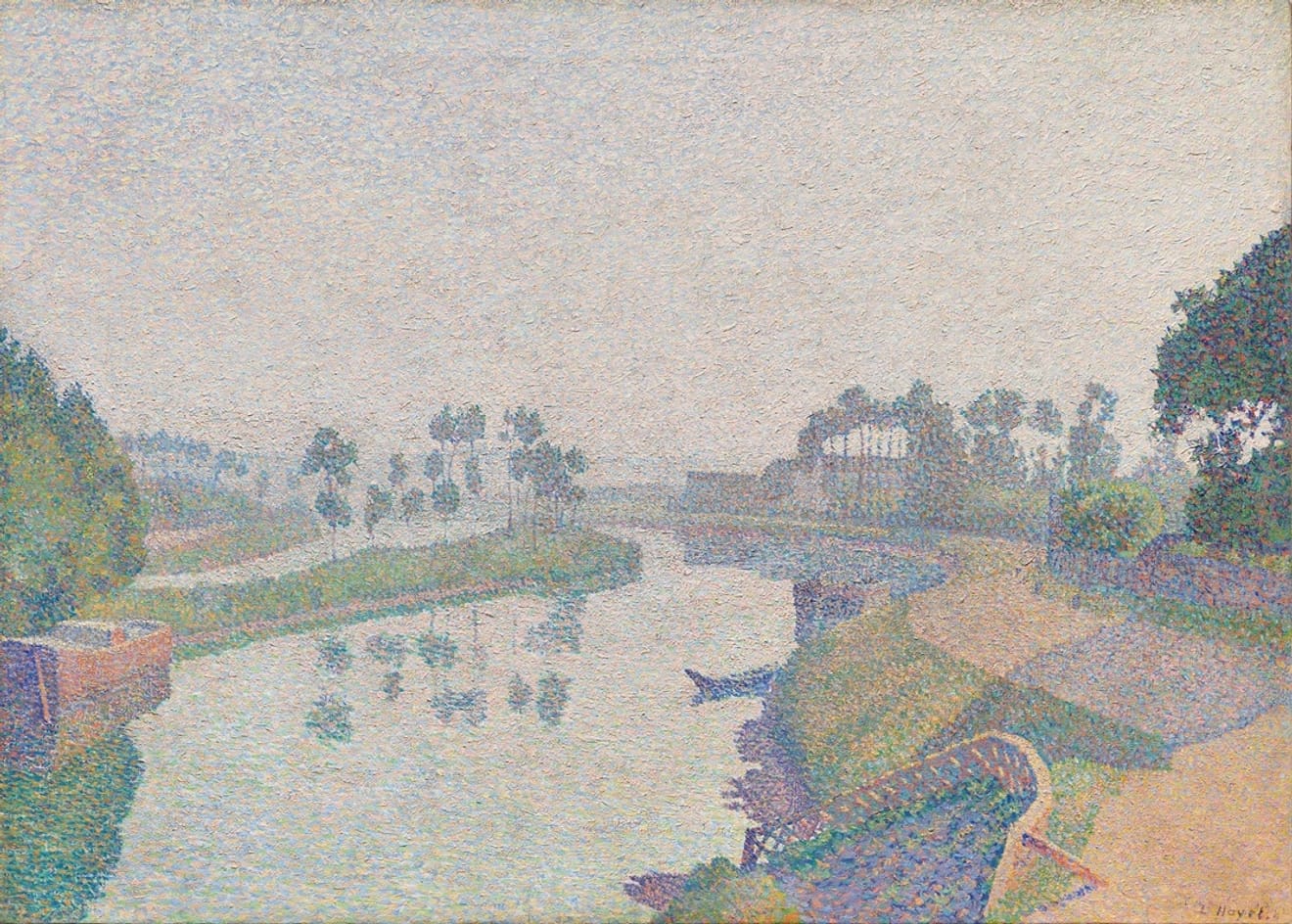Subject
- #Advice
- #Everyday Essay
- #Interpersonal Relationships
- #Essay
- #Self-Improvement
Created: 2024-05-11
Created: 2024-05-11 09:52
The quiet of dawn is a precious time that cannot be replaced with anything else.
It's a golden moment to immerse yourself in your own world, find inner peace before starting the day, and achieve personal growth. In fact, perhaps the time right after waking up is even more precious than gold.
Personally, I don't want my dawn time to be disturbed by communication with others, especially through social networking services (SNS) like KakaoTalk or Instagram. (Groups I voluntarily created or participate in are exceptions.)

A View of the Churches of Kalksburg and Rodaun at Dawn (1842)_Carl Franz Michael Geyling
It's up to each individual when they send messages, including KakaoTalk and other various messages. It's possible to turn off notifications during times when they are disruptive, so I don't care when messages are sent. However, it's difficult for me to understand why someone would insist on seeing SNS, especially during the precious dawn time, when one can enjoy solitude.

Banks of the Oise at Dawn (1888)_Louis Hayet (French, 1864 - 1940)
"My dawn time is a mess these days."
A young woman named A, who also enjoys the dawn like me, once confided in me about her troubles. She said an acquaintance she had recently befriended often contacted her during the early morning hours.
At first, A was happy to receive messages from her acquaintance. However, as time went on, the unnecessary chatter increased, and the acquaintance started lecturing her, making her feel burdened. Eventually, A politely declined further communication with her acquaintance and made an effort to spend her dawn time alone, as she had before.
"I feel hurt that you don't contact me."
But not long ago, A heard that her acquaintance felt hurt and was forced to have a phone call with her during the dawn time.
That day, A wasted her time with useless chatter and couldn't even complete half of the tasks she needed to do. Because of this situation, she said she even started to dread waking up in the morning.

The Banks of the Marne at Dawn (about 1888)_Albert Dubois-Pillet (French, 1846–1890)
Like this, we encounter situations where people make unreasonable demands on us. Some people, like A's acquaintance, even use emotional appeals to inflict emotional wounds on us.
**How far should we go in accepting unreasonable demands from others?**
I've also encountered someone who used emotional appeals. Initially, I felt sorry for them. I felt uncomfortable because I felt like I was hurting them.
However,**we should carefully consider whether someone who uses emotional appeals to force us to do something we don't want to do truly respects us and whether they are someone we should care about.**
A told her acquaintance several times that she needed her own time. But the acquaintance didn't listen to A at all.Can communication be this one-sided? Can that even be called communication? And who compensates for the wasted dawn time and lost concentration?

St Vincent at dawn_Albert Goodwin (English, 1845–1932)
**If we compromise our time, we are the only ones who suffer the consequences.**
We have the right to protect our precious time. Even if it's not A's specific situation, we have the right to refuse unreasonable demands when the other person uses emotional appeals to manipulate us.
People who become sacrificial lambs always think about not hurting others. Using the fact that they have been emotionally hurt, others can manipulate you. They cleverly use it whenever you try to act independently or break free from their control. 95% of 'emotional hurt' is not a genuine wound, but a material used for the victim strategy.
-Wayne Dyer, Your Erroneous Zones
**Is there anyone around you who makes unreasonable demands on you, even though you've said no, by using emotional reasons?**If so, it may be an attempt to manipulate you with emotional appeals. They are trying to control you to their liking.

Bluebonnets at Dawn, North of San Antonio (1915)_Julian Onderdonk (American, 1882 – 1922)
We must learn to refuse nonsensical demands in order to live well as ourselves.
Don't worry if the other person sees you as someone who makes them feel hurt or someone who is overly sensitive about trivial things. We should make the 'bad' choice of making them feel hurt for our own sake. It's a much happier thing to do than making a bad choice for ourselves.
Comments0